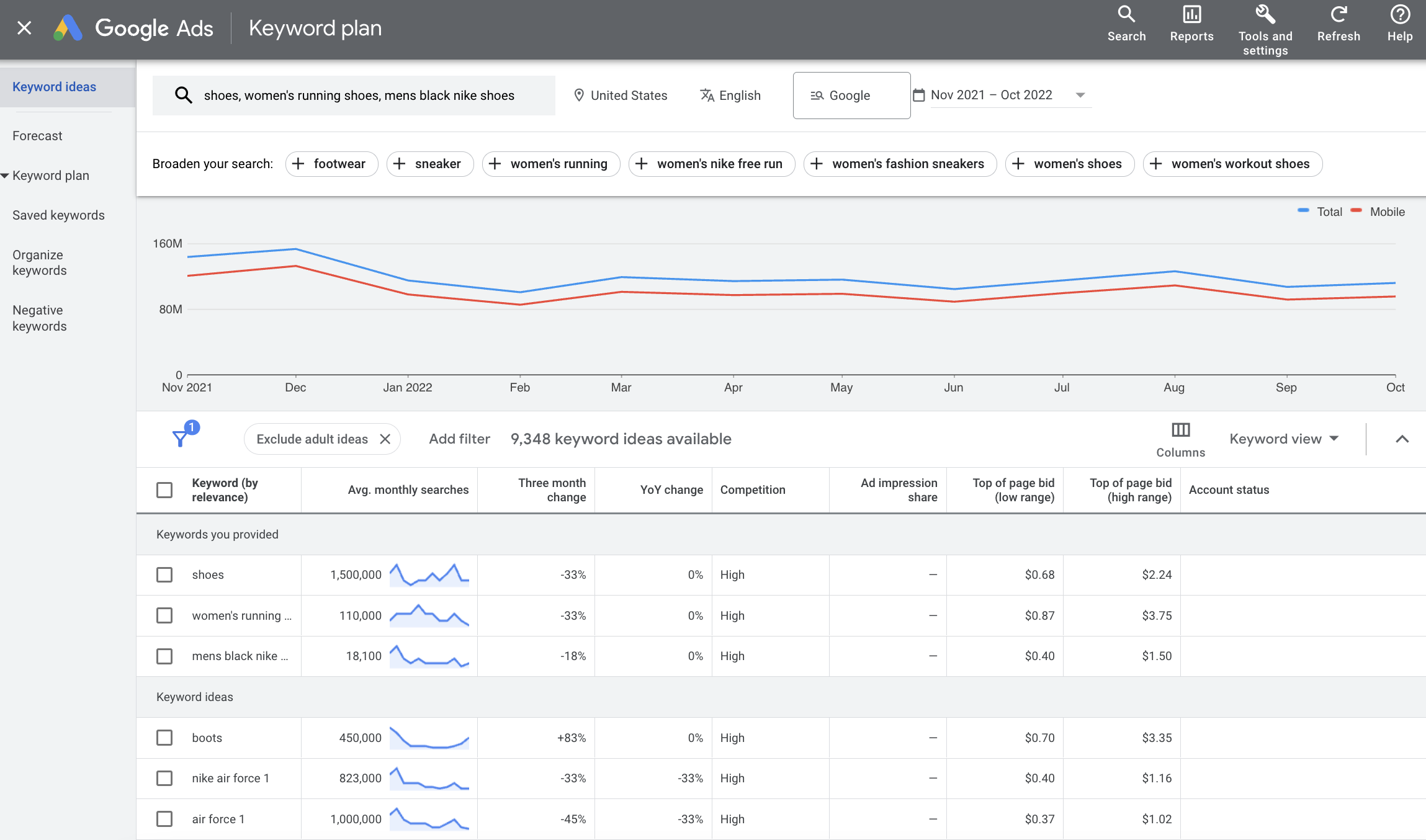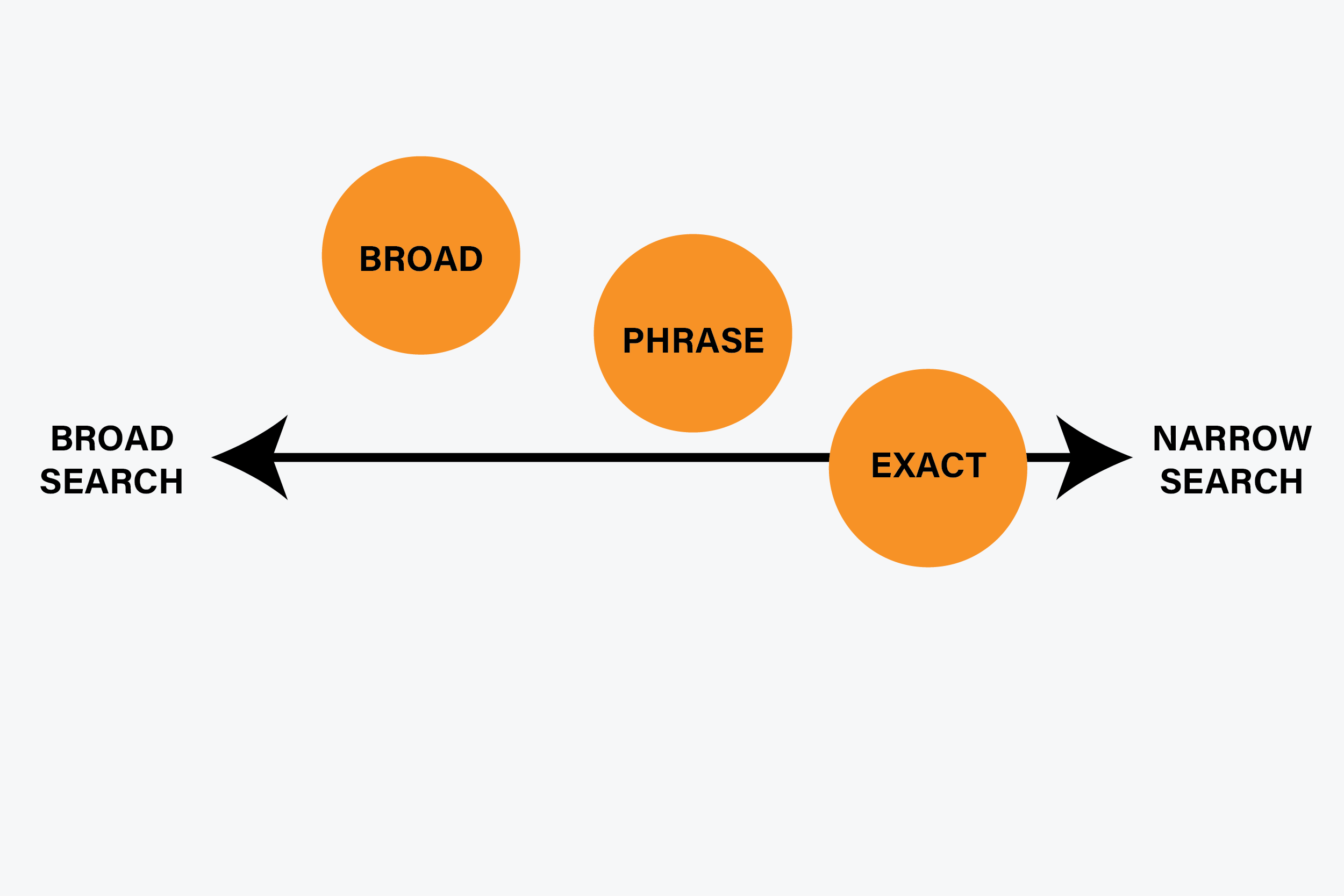THIS WEEK'S PPC MISTAKE TO AVOID
MISTARGETINGOne of the biggest pitfalls when setting up a PPC campaign is targeting the wrong keywords or using the wrong keyword match types. Here’s what you can do to avoid this –
Using keyword match types in Google Ads lets you control when your ads appear as people are searching for services. This optimizes the performance of your campaigns and done correctly can produce produce some great results.
Incorrect targeting means that your ads are going to be placed in front of the wrong people. Would you want people accidentally clicking on your ad promoting “men’s running shoes” when they are in fact searching for “best running vests and shoes.” Luckily, poor ad targeting is an easy fix. But before you can begin to create effective PPC ads, you need to have a clear understanding of who your customer is and what keywords and keyword phrases they are using to find your product or service.
For example, if you sell shoes, the tendency is to think that you should appear every time someone searches for “shoes” on Google. But, because you pay for every click that you get, this strategy will cost you a lot of money with very little return. What you should be doing is targeting people who are as far down the buying tunnel as possible ->
Awareness
Interest
Consideration
Desire
Action
How can you tell the difference? If someone is just searching for “shoes”, they probably have a lot of research time left before purchase. A more targeted keyword or keyword phrase would be “women’s running shoes,” “mens black nike shoes,” “orthopedic shoes” – targeting something that specific is a lot more likely to appeal to someone who knows exactly what they are looking for. Someone with their credit card in hand, ready to purchase.

Keyword Match Types
There are three different match types you can use for keywords in Google. The keyword match types dictate how closely the keyword needs to match the users search query for the ad to be considered relevant enough to show to them.
Keyword match types help you control how and where your ad will appear in a given search query. You can choose for your search to be as narrow or as broad as possible by choosing a match type. We’ll use the keyword “running shoes” as an example.
Broad Match
Google Ads default match type for keywords. This match type creates the greatest reach for the keywords you are bidding on. The ads display for a wide range of keywords that loosely match the intended keyword, including misspellings. For example, if you were bidding for: running shoes, a broad match would populate: shoes for running, buy running shoes on sale, black running shoes
Phrase Match " "
shows ads on searches that match a phrase, and is displayed in quotations, including words before and after, like “shoes for running,” “buy running shoes on sale,” “running shoe,” “comfortable running shoes.” Phrase match is more targeted than broad match, which will prevent your ad from showing if a person were to search for: “can you wear running shoes for tennis,” or “running vest and men’s shoes” because they don’t have the same meaning as the phrase match.
Exact Match [ ]
This is where ads will show on searches that match the exact term and is displayed in closed brackets, for example [running shoes], [shoes for running], [running shoe] would be exact matches with the same meaning. But it would not appear for searches like [buy running shoes on sale], [black running shoes], [comfortable running shoes] because it does not have the exact same meaning.
Google helps you by automatically matching singular and plural versions of your keywords and other close variations of keywords. Here you can see the relationship between the key word match types:

In a nutshell…
For the greatest reach and broadest targeting use broad match keywords. For narrow and controlled targeting, use exact match and for targeting that balances between the two use phrase match. If you want to change the match type for an existing keyword, we recommend that you pause the keyword first and re-add the keyword with the different match type. This will let you compare the keyword with the different match types.
Still unsure on what match type to use for your keyword? Think about what your goal is. If your goal is to gain more visibility – use broad match search for your keywords as this will get you the greatest reach. If your objective is to drive as many conversions as possible with a limited budget, using exact match keywords will mean you’re more focused with your targeting. Your ads won’t be shown as often but you will have more control over when they are seen as people are searching.
The good news is nothing is set in stone. You can always change this as you start to see conversions coming through for your campaign.
KEYWORDS WITH BUYERS INTENT
Most experts will agree that when it comes to choosing keywords, buyer intent is more important than search volume. Fortunately, you can select keywords that buyers tend to use in a search, converting them from visitors to customers in no time. Buyer intent keywords are search terms that show someone is actively looking to make a purchase. Once you know the buyer intent keywords that your ideal customers are using, you can start to target them with relevant content or paid ads.
An example of a low purchase intent keyword is the word “Free.” If someone uses that in their search query, they probably aren’t going to open their wallet. A great example of a high buyer intent keyword is “Buy Now.” If someone is looking for a product with the words “buy now,” we can assume they’re ready to make a purchase.
HOW TO IDENTIFY IT
Keywords with high Buyer Intent can be evaluated by looking at the number of people who advertise on a specific keyword in Google Adwords. You can start by doing a Google search for queries related to your solution. Generally, keywords with high buyer intent will have multiple ads, and they will often include a direct Call-To-Action such as Start Free Trial, or Buy Now.
While this method isn’t perfect, it is free and a good starting point that can give your team some great ideas to create content around.
I hope that you can take this and build up your digital marketing campaign. And if you feel like you need help, please reach out and we can help you avoid making costly mistakes and generate solid new patients for your practice.
Give us a call today – 303.473.4400 or reply back to this email and let’s connect!
Thanks,
Jeff

Busy running your business? We can help..
Our expert team is here to help you with all of your PPC and Digital Marketing needs. Click here to start your free consultation today.
READY TO START GROWING YOUR BUSINESS?
Schedule a free, No Obligation Consultation about our Digital Marketing Services
let’s start marketing
Say Hello!
We would love to discuss your project with you. Get in touch by filling out the form below and we’ll contact you asap. Want to speak to a human now? Text or call 303.473.4400

